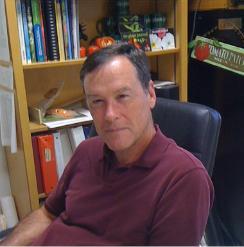
Mailing Address:
Fifield Hall
2550 Hull Road
PO Box 110690
Gainesville, Florida 32611
E-mail: hjklee@ufl.edu
-
Areas of Research
- Genetics and biochemistry of flavor
- Tomato fruit development
-
Teaching Responsibilities
- HOS 5306 – The Molecular Biology of Plant Hormones
-
Educational Background
- Ph.D., Biochemistry, University of Massachusetts (1980)
- B.S., Psychology, University of Massachusetts (1974)
-
Work Experience
- 1995- Eminent Scholar, Dickman Chair for Tomato Improvement, University of Florida, Dept. of Horticultural Sciences
- 1992-95 Adjunct Professor, Washington University Dept. of Biology
- 1992-95 Fellow, Monsanto Company
- 1984-92 Senior Scientist, Monsanto Company
- 1980-84 Postdoctoral Fellow in the laboratory of Dr. Eugene Nester, Dept. of Microbiology, University of Washington.
-
Professional Activities
- President, American Society of Plant Biologists 2017
- President-Elect, American Society of Plant Biologists 2016
- Qiushi Chair Professor, Zhejiang University, Hangzhou China 2014
- ASPB Early Career Award Committee member 2006-09
- Editor-in-Chief, The Plant Journal 2002-2009
-
Honors and Awards
- 2012 Elected Member, U.S. National Academy of Sciences
- 2009 Elected Fellow, American Association for the Advancement of Science
- 2008 Van Camp Becks Award for Distinguished Service in the Field of Horticulture
- 2001 Invited Professor Fellowship from Institut National Polytechnique Toulouse
-
Program Personnel
- Denise Tieman, Research Assistant Professor
- Mark Taylor
- Dawn Bies
